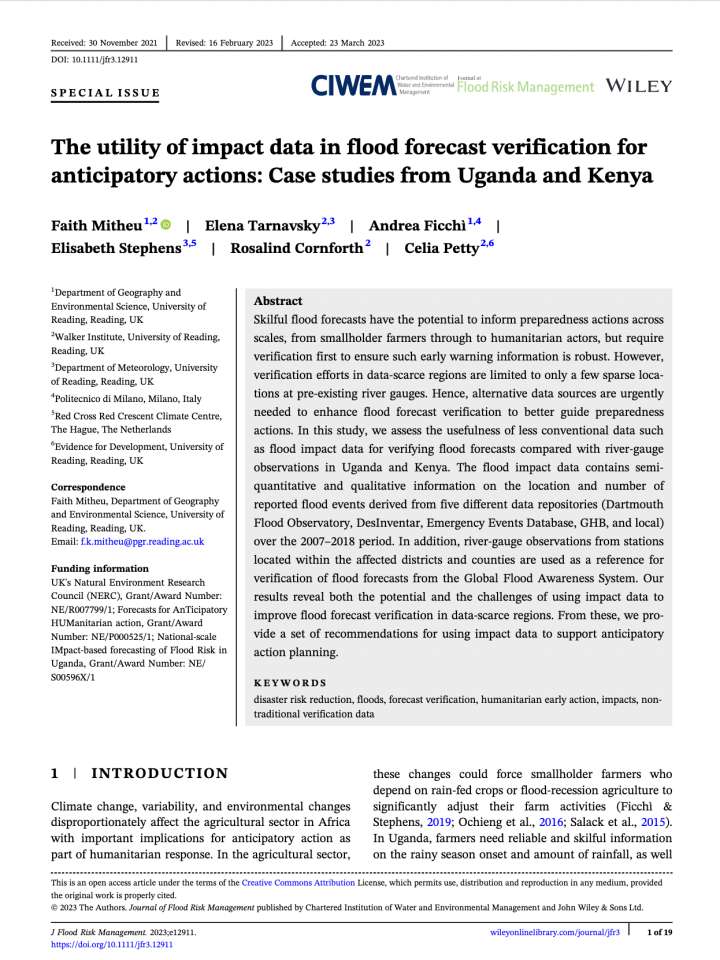The utility of impact data in flood forecast verification for anticipatory actions: Case studies from Uganda and Kenya
This study assesses the usefulness of less conventional data such as flood impact data for verifying flood forecasts compared with river-gauge observations in Uganda and Kenya. The flood impact data contains semi-quantitative and qualitative information on the location and number of reported flood events derived from five different data repositories (DartmouthFlood Observatory, DesInventar, Emergency Events Database, GHB, and local)over the 2007–2018 period.
This study concludes that investing in early warning early action mechanisms can be an effective way to prepare and adapt to these extreme events. However, such an investment will require under-standing how forecast information performs in detecting these extreme events to ensure that anticipatory actions are not taken in vain. While forecast verification has been successful in regions where long-term hydro-meteorological observations are available, this is very challenging in data-scarce regions
Explore further
